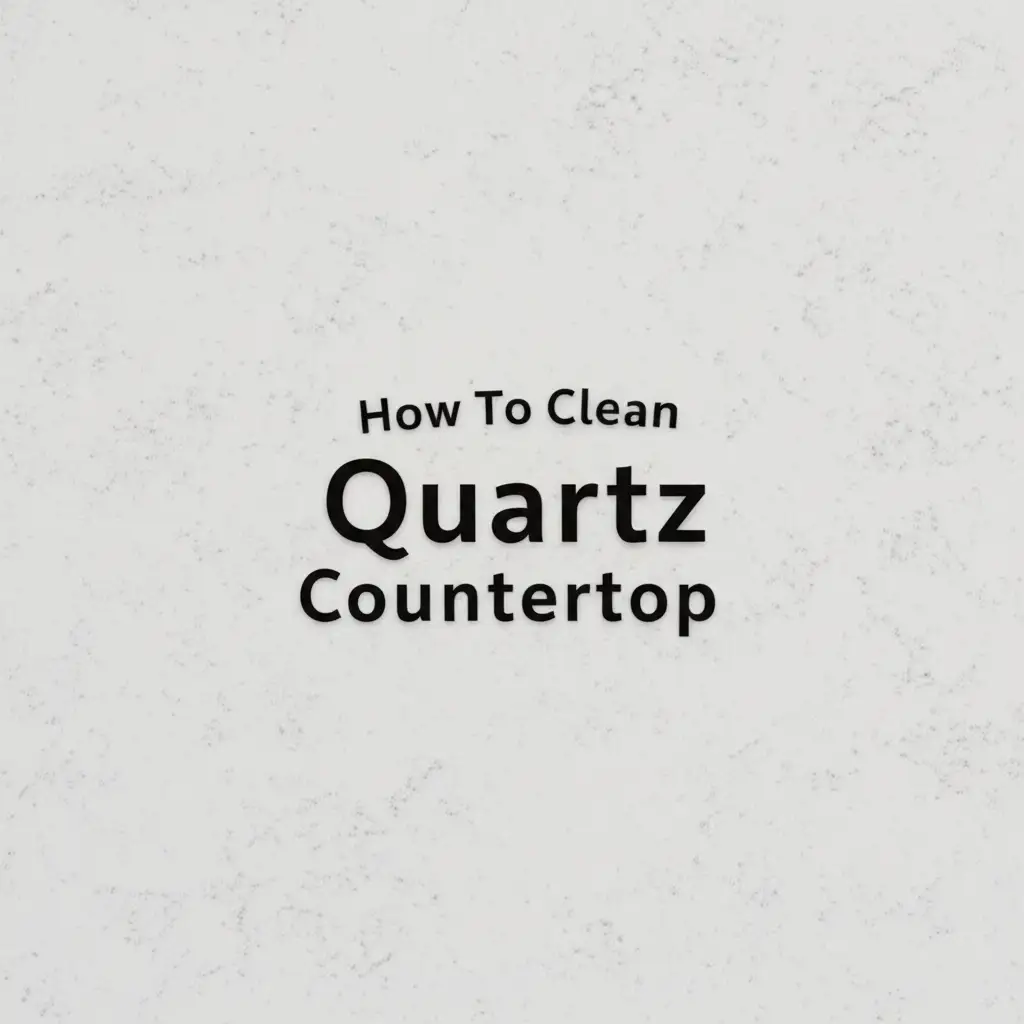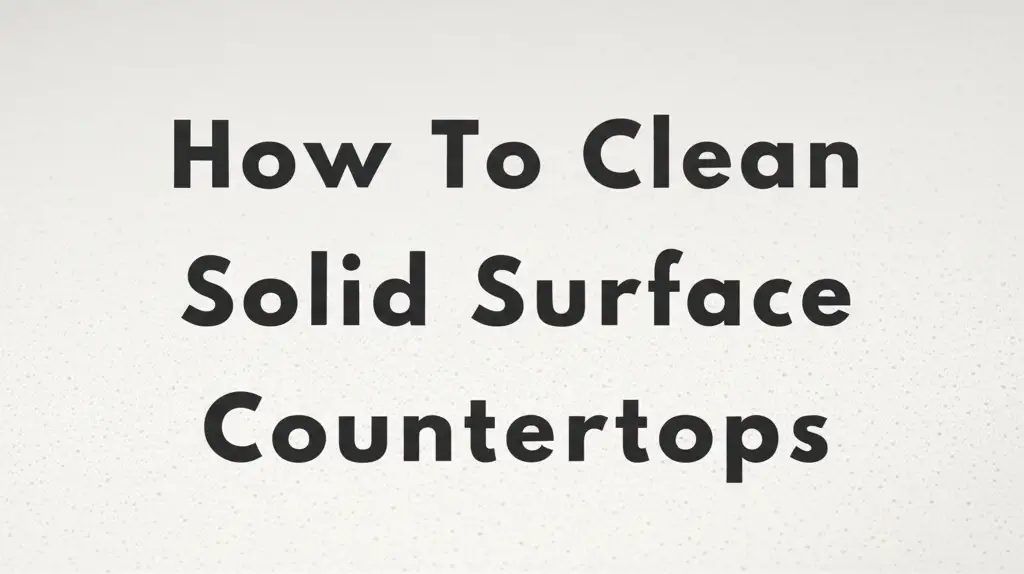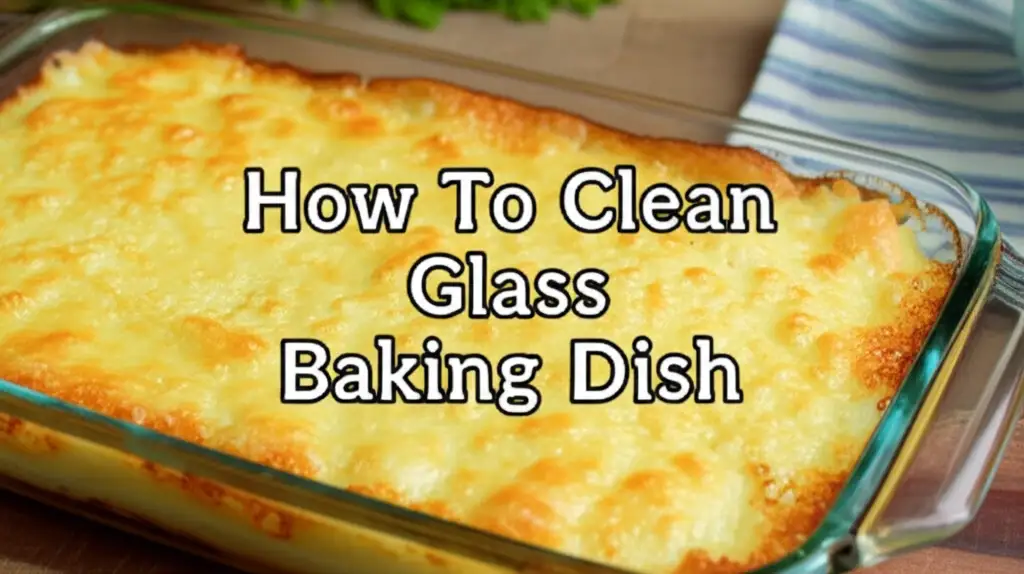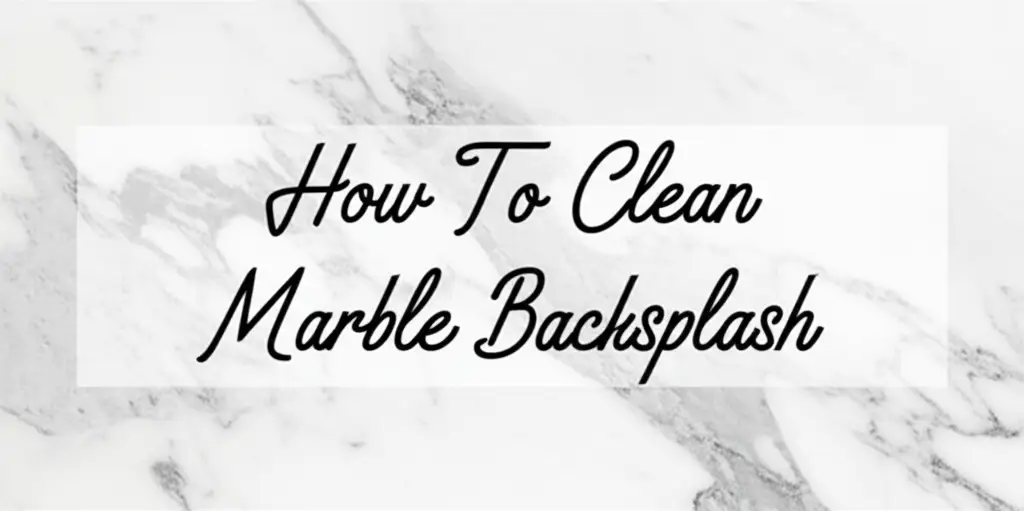· Home Cleaning · 14 min read
How To Clean Quartz Countertop

How To Clean Quartz Countertop: Simple Steps for a Spotless Surface
Your kitchen quartz countertop adds beauty and function to your home. It resists stains and scratches well, but it still needs proper care. Knowing how to clean quartz countertop surfaces correctly keeps them looking their best. Incorrect cleaning can damage quartz, reducing its shine or causing dull spots. This guide shares simple methods to keep your quartz counters sparkling. We will cover daily care, spill response, deep cleaning, and products to avoid.
Takeaway
Keeping your quartz countertop clean is easy with the right approach. Here is what you need to know:
- Wipe spills quickly with a soft cloth and mild soap.
- Use only gentle, non-abrasive cleaners designed for quartz or general surfaces.
- Avoid harsh chemicals like bleach, oven cleaner, or abrasive scrubbing pads.
- Perform deep cleaning regularly to maintain shine and hygiene.
- Protect your quartz from hot pots and sharp objects.
How do you clean quartz countertops effectively?
You clean quartz countertops effectively by using warm water and a small amount of dish soap for daily wipes. For tougher spots, a glass cleaner or a specialized quartz cleaner works well. Always wipe surfaces dry with a microfiber cloth to prevent water spots and maintain shine.
Understanding Your Quartz Countertop
Many homeowners love quartz countertops. They offer a great mix of beauty and durability. Quartz is an engineered stone. It contains a high percentage of natural quartz minerals, resins, and pigments. This composition makes quartz surfaces hard and non-porous.
The non-porous nature of quartz makes it highly resistant to stains. Liquids and spills do not easily soak into the surface. This is a big advantage over natural stones like granite or marble. You do not need to seal quartz countertops, which saves time on maintenance. Quartz also offers good scratch resistance. However, it is not completely scratch-proof. Sharp knives can leave marks if you cut directly on the surface.
Heat can also be an issue for quartz. The resins in quartz can melt or discolor when exposed to high temperatures. Always use trivets under hot pots and pans. Understanding these features helps you choose the right cleaning methods. It also helps you avoid damage. Proper care ensures your quartz stays beautiful for many years.
Daily Cleaning Routine for Quartz Countertops
A simple daily routine keeps your quartz countertops looking great. Regular cleaning prevents dirt and grime buildup. It also makes deeper cleaning less frequent. I find that a quick wipe-down each day makes a big difference. This routine only takes a few minutes of your time.
First, gather your cleaning supplies. You will need a soft cloth or sponge. Microfiber cloths work best because they are gentle and highly absorbent. You also need warm water and a mild dish soap. Avoid harsh scrubbers or abrasive sponges. These can dull your quartz surface over time.
To start, wipe away any loose crumbs or debris. Then, add a few drops of dish soap to warm water. Dampen your cloth with this soapy water. Wipe down the entire surface of your quartz countertop. Make sure to cover all areas where food or liquids might have spilled. Rinse your cloth with clean water. Wipe the countertop again to remove any soap residue. Finally, dry the surface with a clean, dry microfiber cloth. This step is important to prevent water spots and streaks. This simple daily wipe helps you maintain a pristine quartz surface. It also prepares your kitchen for the next meal. If you have an ice maker on your counter, remember to also wipe around it regularly for a truly clean kitchen space. You can read more about how to clean a countertop ice maker if you own one.
Dealing with Spills and Stains on Quartz
Spills happen, especially in a busy kitchen. Quartz is stain-resistant, but immediate action is still important. Different types of spills require different approaches. Acting quickly prevents stains from setting. This keeps your quartz looking its best.
Immediate Spill Cleanup
When a spill occurs, act fast. Grab a soft cloth or paper towel. Blot the spill right away. Do not wipe or spread the liquid. Blotting lifts the spill from the surface. Then, use warm water and a little dish soap on a damp cloth. Gently wipe the area. Rinse the cloth and wipe again to remove soap. Finally, dry the surface with a clean, dry cloth. This simple step prevents most common spills from becoming stains.
Tackling Stubborn Stains
Some stains need more effort. Food stains like coffee, tea, or wine can leave marks if left too long. For these, try a non-abrasive household cleaner. A common glass cleaner or a specific quartz cleaner works well. Spray the cleaner on the stain. Let it sit for a few minutes. Then, wipe with a soft cloth. Repeat if needed.
For dried food, grease, or sticky messes, a plastic putty knife can help. Gently scrape away the solid residue. Be careful not to scratch the surface. Then, clean the area with mild soap and water. For very tough stains, like permanent marker or paint, a specialized cleaner may be needed. Always check the product label for “safe for quartz” claims. Test the cleaner on a small, hidden area first. This ensures it does not damage your countertop. Remember that some cleaners may work differently on various surfaces. For example, cleaning a butcher block countertop requires different products and methods.
Addressing Dried-On Gunk
Sometimes, food dries onto the counter. This makes it hard to remove with just a wipe. Use a dull plastic scraper. Gently lift the dried material. Then, wipe the area with a damp cloth and mild soap. For sticky residues like gum or glue, ice can help. Place an ice cube on the spot until the gunk hardens. Then, carefully scrape it off. Clean the area with soap and water afterward. This method avoids harsh chemicals and protects your quartz.
Deep Cleaning Your Quartz Countertops
While daily wiping keeps quartz clean, deep cleaning brings back its shine. It also helps remove any lingering residues. I aim to deep clean my quartz countertops every few weeks or once a month. This depends on how much I use the kitchen. Deep cleaning helps maintain the non-porous nature and prevents dullness.
Start by clearing everything off your countertops. Remove small appliances, decor, and anything else. This gives you full access to the surface. Next, do a thorough daily wipe-down. Use warm water and mild dish soap to remove any loose dirt and crumbs. Make sure the surface is free of surface grime.
Now, choose your deep cleaning product. Many commercial quartz cleaners are available. Read labels carefully to ensure they are safe for engineered stone. Avoid anything abrasive or highly acidic. Alternatively, you can make a simple solution. Mix equal parts of rubbing alcohol and water in a spray bottle. Rubbing alcohol helps to disinfect and remove streaks. Spray the cleaner evenly over the countertop surface. Let it sit for a minute or two. This gives the solution time to break down any tougher grime.
Use a clean microfiber cloth to wipe the entire surface. Wipe in sections, ensuring thorough coverage. You might need to rinse your cloth often. For stubborn spots, apply a little more pressure. After wiping, use a separate, clean, damp cloth to rinse the surface. This removes any cleaner residue. Finally, dry the countertop completely with a dry microfiber cloth. Drying prevents water spots and leaves a streak-free shine. This deep cleaning process will make your quartz look new again. It also keeps your kitchen hygienic.
What Not to Use on Quartz Countertops
Knowing what not to use on quartz is as important as knowing what to use. Certain cleaners and tools can damage your beautiful countertops. Using the wrong products can dull the finish, cause discoloration, or even etch the surface. I always double-check product labels before applying anything new to my quartz.
First, avoid abrasive cleaners and scrubbing pads. This includes steel wool, abrasive sponges, and powdered cleansers. These materials can scratch the smooth surface of your quartz. Even though quartz is durable, it is not impervious to all forms of abrasion. Scratches are hard to remove once they occur.
Second, stay away from harsh chemicals. Bleach, oven cleaners, drain cleaners, and paint removers are major no-nos. Products containing high levels of ammonia, acids, or lye can break down the resin binders in quartz. This can lead to permanent discoloration or etching. Window cleaners are generally safe, but avoid those with strong ammonia. If you accidentally spill any of these harsh chemicals, wipe them up immediately. Then, rinse the area thoroughly with water.
Third, avoid highly acidic or alkaline substances. While quartz resists stains, prolonged exposure to things like vinegar, lemon juice, or strong alkaline degreasers can harm the finish. While you might use vinegar to clean glass or even clean walls, it is not good for quartz. If you use these items in cooking, clean spills quickly.
Fourth, steer clear of oil-based soaps or wax polishes. Quartz does not need sealing, and these products can leave a greasy residue. This residue attracts dirt and can make your countertop look dull. It can also be difficult to remove over time. Stick to water-based, non-abrasive cleaners. This protects your quartz and keeps it looking new.
Polishing and Protecting Your Quartz Surface
After cleaning, you want your quartz countertop to shine. Polishing quartz is less about a true “polish” and more about restoring its natural luster. Since quartz is non-porous, it does not absorb polishes like natural stone. The goal is to ensure a streak-free, gleaming finish. Protecting your quartz also extends its lifespan and beauty.
First, ensure your countertop is perfectly clean and dry. Any residue or water spots will interfere with the final shine. You can use a dedicated quartz polish spray for this step. These products are formulated to enhance the gloss of engineered stone. They do not contain waxes or sealants. Apply a small amount of the polish onto a clean microfiber cloth. Wipe the entire surface in small, overlapping sections. Buff gently until the desired shine appears.
Alternatively, for a simple and effective method, use a clean, dry microfiber cloth. Buff the surface vigorously after drying it from cleaning. The fine fibers of the cloth help remove any microscopic residues and bring out the natural sheen. This is often enough to make your quartz look its best.
Protection is key for long-term care.
- Use Trivets: Always place trivets or hot pads under hot pots, pans, and appliances like slow cookers. The resin in quartz can scorch or melt with direct heat. This causes permanent damage or discoloration.
- Use Cutting Boards: Do not cut directly on your quartz countertop. While scratch-resistant, sharp knives can leave marks. Always use a cutting board.
- Wipe Spills Immediately: Even though quartz is stain-resistant, highly pigmented liquids like wine, coffee, or beet juice can leave marks if left for long periods.
- Avoid Harsh Chemicals: As discussed earlier, keep corrosive or abrasive cleaners away from your quartz. This includes oven cleaners, paint removers, and strong acids.
By following these simple steps for polishing and protection, your quartz countertop will remain a beautiful, durable part of your home for many years.
Troubleshooting Common Quartz Countertop Issues
Even with proper care, you might encounter specific issues with your quartz countertops. Knowing how to fix these common problems helps you maintain your investment. I have faced a few of these myself, and there are simple solutions.
Dullness or Lack of Shine
Sometimes, quartz can appear dull. This usually happens from residue buildup or improper cleaning.
- Residue Buildup: If your quartz looks dull, it might have soap residue or film from a cleaner. Try wiping it down with warm water and a small amount of rubbing alcohol. Mix equal parts water and rubbing alcohol in a spray bottle. Spray, then wipe thoroughly with a clean microfiber cloth. Dry immediately with a fresh, dry cloth. This often restores the shine.
- Hard Water Spots: Hard water can leave mineral deposits, making your surface look cloudy. For these spots, use a paste of baking soda and water. Apply it to the spot, let it sit for a few minutes, then gently rub with a soft cloth. Rinse well and dry.
Scratches on Quartz
While quartz is scratch-resistant, it is not scratch-proof. Deep scratches are hard to fix at home. Light surface scratches, however, might be minimized.
- Light Scratches: Sometimes, what looks like a scratch is actually metal residue from a pan or utensil. Try rubbing the mark with a non-abrasive cleaner and a soft cloth. If it is truly a shallow scratch, a professional repair kit might be needed. For a professional finish, you might need expert help. Always use cutting boards to prevent new scratches.
Chips or Cracks
Chips often happen from heavy objects falling on the edge of the countertop. Cracks are less common but can occur from extreme temperature changes or poor installation.
- Small Chips: For very small chips, clear epoxy resin or a specialized stone repair kit can fill the void. Apply carefully, following product instructions, and smooth the area.
- Larger Chips/Cracks: For significant chips or cracks, contact a professional countertop repair specialist. They have the tools and materials to make almost invisible repairs. Early repair prevents further damage.
Regular maintenance and quick attention to issues keep your quartz looking flawless. Understanding these common problems helps you respond effectively.
FAQ Section
Q1: Can I use Windex or glass cleaner on quartz?
A1: Yes, most glass cleaners like Windex are safe for quartz countertops. They are non-abrasive and help cut through grease and grime. Always choose ammonia-free versions for best results. Spray the cleaner on, wipe with a soft cloth, and then dry with a clean microfiber cloth to avoid streaks.
Q2: What is the best daily cleaner for quartz?
A2: The best daily cleaner for quartz is simply warm water mixed with a few drops of mild dish soap. This solution effectively cleans spills and everyday grime without harming the surface. For a streak-free finish, always dry the countertop thoroughly with a microfiber cloth after cleaning.
Q3: How do I remove tough stains from quartz?
A3: For tough stains like dried food, wine, or coffee, use a non-abrasive household cleaner or a specialized quartz cleaner. Apply the cleaner, let it sit briefly, then wipe with a soft cloth. For very stubborn spots, a paste of baking soda and water can be gently applied, then rinsed thoroughly.
Q4: Can I put hot pans directly on quartz countertops?
A4: No, you should not put hot pans directly on quartz countertops. The resin in quartz can be damaged by high heat, leading to discoloration, scorching, or cracking. Always use trivets, hot pads, or a cooling rack under hot items to protect your countertop’s surface.
Q5: Does quartz need to be sealed?
A5: No, quartz countertops do not need to be sealed. Unlike natural stone surfaces, quartz is engineered to be non-porous. This means it is already highly resistant to stains and does not absorb liquids, eliminating the need for periodic sealing or re-sealing.
Q6: Can I use abrasive pads on my quartz countertop?
A6: No, you should not use abrasive pads or scrubbers on your quartz countertop. Materials like steel wool, harsh scouring pads, or even abrasive sponges can scratch the surface of your quartz. These scratches can dull its finish and are very difficult to remove. Stick to soft cloths or microfiber towels.
Conclusion
Cleaning your quartz countertop does not have to be a chore. With the right tools and methods, you can easily maintain its beauty and durability. We covered daily care, dealing with spills, and deep cleaning for a truly spotless surface. Remember to always use gentle, non-abrasive cleaners and soft cloths. This protects your quartz from damage.
Avoid harsh chemicals and abrasive scrubbers at all costs. These can dull or damage the unique resin in quartz. Your quartz countertop is an investment. Proper care extends its life and keeps it looking brand new for years. By following these simple steps, you ensure your kitchen remains a bright and welcoming space. Keep your quartz countertop gleaming effortlessly with these expert tips.
- quartz cleaning
- countertop care
- stain removal
- kitchen cleaning




